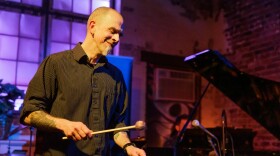Harper got her start in the '40s as a child star. Growing up on stages, Harper was singing, acting and dancing from the age of four. She sang songs like “Swing Low, Sweet Chariot,” “The Muffin Man" and “Three Blind Mice.” Despite her age, she sang with the confidence and control of Ella Fitzgerald and Sarah Vaughan.
At age nine, Harper recorded the cute confessional of a young girl who loves sweets called “Candy Store Blues.” It was a platinum hit.
She performed with Cab Calloway, sang at Carnegie Hall. She was on TV with Frank Sinatra, & Perry Como. She made solo appearances on the Ed Sullivan show a handful of times, all before she turned 12-years-old.
In her teen years, Toni became an in-demand singer. When she was 17, she recorded “Play Me the Blues” and “Taking a Chance on Love” with Dizzy Gillespie and his Orchestra.
A year later, she signed to Verve Records, where she recorded Toni Harper Sings with the Oscar Peterson Trio. It was her only album in an intimate jazz setting and her first time singing jazz standards from Rodgers & Hart, Billy Strayhorn and Cole Porter.
Harper was only 18 during these recording sessions. She recalled learning the songs for the first time while she sat next to Oscar on the piano bench. She later described him as 'the kindest, most gentle, soft-spoken, fun person.'
A clipping from Jet magazine marks her time with the Count Basie Orchestra at age 22 - where she was, according to the clip, the first woman to sing with the orchestra in nearly seven years.
At 26, she traveled abroad with the Cannonball Adderly quintet to Japan. Where she toured, performed on TV, and sang across Japan. During her time there she preformed with Yussef Lateef, Sam Jones, Joe Zawinul, Louis Hayes and Cannonball.
The trip was impactful for Toni, who converted to Buddhism a few years later. Her new faith was one of the reasons she left the recording industry at the age of 29, opting for a life outside of the constant demands of being a professional singer.
She never recorded commercially again, but in her 80s, she made an impact as a player of the virtual reality video game Second Life. She built an online community of friends and even recorded new material performed in the game’s virtual world.
Harper’s impact on popular music could easily be lost to the hands of time, but reflecting on her talents, success, and life beyond entertainment shows that pursuing personal joy, love, and community is the most fulfilling life for anyone to live.






